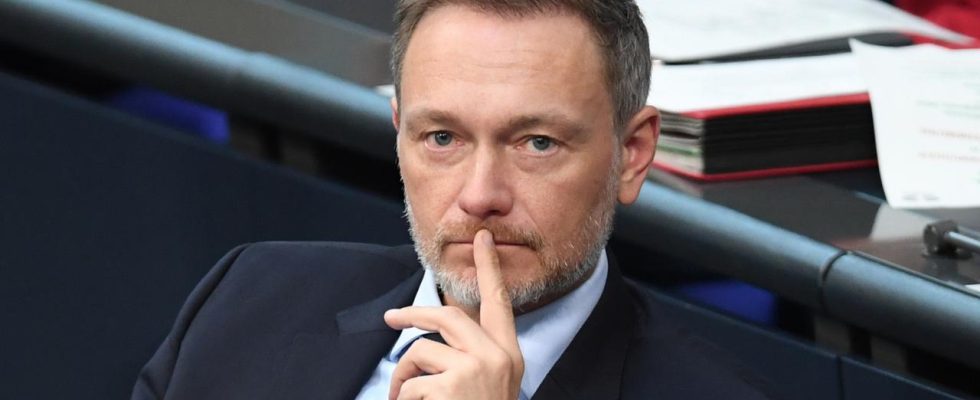Freeze social spending in order to have more money for the Bundeswehr – this proposal from Finance Minister and FDP leader Lindner has met with sharp criticism from the coalition partners SPD and Greens. Social groups call the idea “indecent.”
The coalition is debating whether and how the Bundeswehr can be financed exclusively from the general budget from 2028, as Chancellor Olaf Scholz plans to do. Federal Finance Minister Christian Lindner, who is also FDP leader, had suggested freezing social spending at the current level for three years in order to be able to invest more money in defense – and received sharp criticism from the ranks of the coalition partners.
The SPD chairwoman Saskia Esken told the newspapers of the Funke media group that the Social Democrats were not prepared to accept Lindner’s proposal not to introduce any new social benefits for three years. She criticized that it was “downright irresponsible to further fuel people’s uncertainty with alarmist messages without offering your own solutions.”
Instead, Esken – contrary to Scholz – reiterates the SPD idea of taxing the rich more heavily. Germany is a rich country in which “many very rich people live who can make a greater contribution to the common good and are partly willing to do so,” Esken told the newspapers of the Funke media group.
Bas for adjusting the debt brake
Bundestag President Bärbel Bas also turned against Lindner’s move and warned against playing off the financing of the Bundeswehr and social spending against each other. “We have to put the Bundeswehr in a better position again, which means, above all, making it fit for national and alliance defense,” the SPD politician told the newspapers of the Funke media group. But there are also enough other construction sites such as social justice, educational equality, infrastructure or the ecological transformation of industry. If one is played off against the other, society risks drifting apart, warned Bas.
In this context, she suggested easing the debt brake in the Basic Law. The debt brake is right and important. However, there needs to be a debate about adjustments in order to have more scope for important future investments. At the same time, Bas warned against easing up on support for Ukraine. “It is important to quickly deliver the material that Ukraine needs now,” said the Parliament Speaker.
“Have social responsibility”
The Green party leaders Britta Haßelmann and Katharina Dröge also reject cuts in social spending. Haßelmann expects a tough debate over the federal budget for next year. If the special funds for the Bundeswehr are used up, further investments in military defense will be necessary.
“At the same time, we have a social responsibility. It shouldn’t mean armament or pension,” Haßelmann told the Süddeutsche Zeitung. “We will not achieve the high sums that are necessary through savings quotas for each department. What we need is reliability and scope for action,” said Haßelmann.
Her colleague Dröge made similar comments in the Rheinische Post. Cuts in social spending are “the wrong approach,” especially in times of high prices.
“This debate is fundamentally wrong”
The Social Association of Germany (SoVD) had previously sharply criticized Lindner’s demand. “It is indecent that the finance minister wants to make savings for the poorest and most vulnerable in society,” said SoVD board chairwoman Michaela Engelmeier. “When I hear something like that, I always wonder if the person has ever spoken to someone who is on benefits.”
The debate is fundamentally wrong, Engelmeier continued. “It is primarily anti-democratic actors who benefit from this.” The head of the association demanded: “Instead of financing armaments at the expense of social benefits, we must strengthen the state’s income. We need a reform of the debt brake and higher tax revenue.” Engelmeier mentioned an excess profits tax for companies, a reform of the inheritance tax and a wealth tax for the super-rich.
The background to the debate is, among other things, the Federal Government’s commitment to NATO to achieve defense spending of at least two percent of gross domestic product (GDP). According to the alliance, Germany is only just achieving the NATO quota this year at 2.01 percent.

